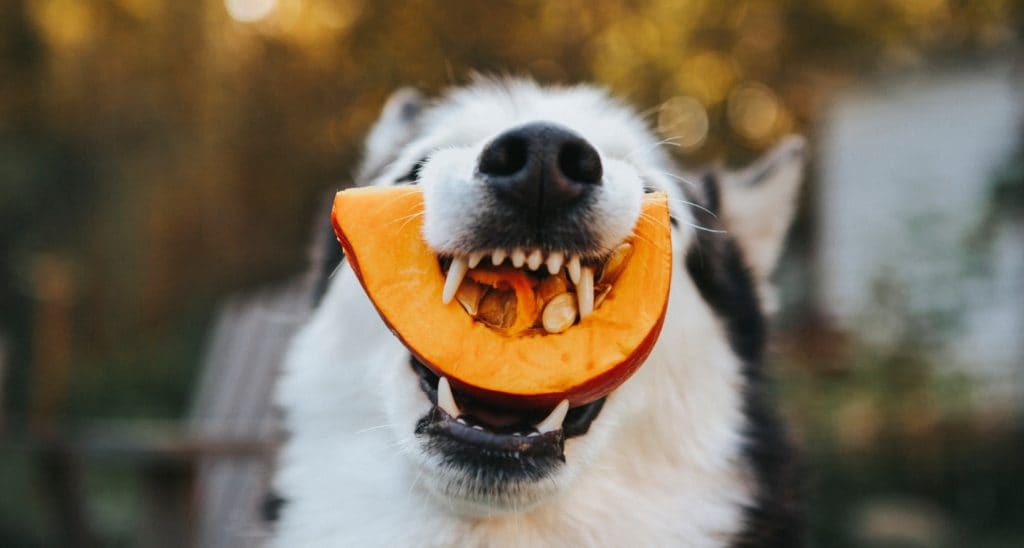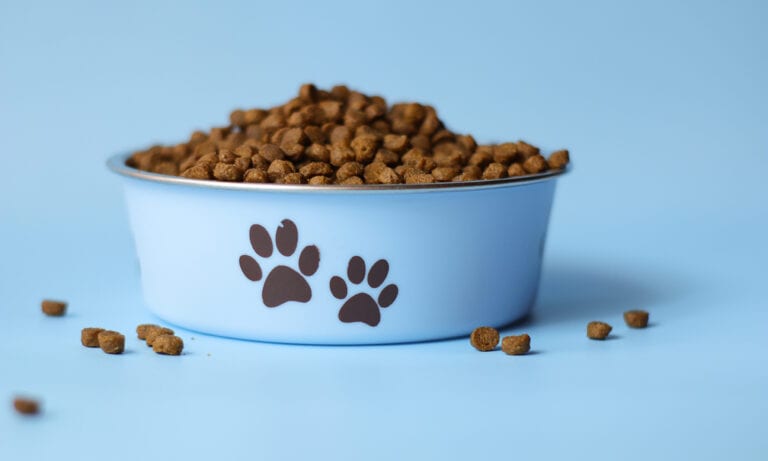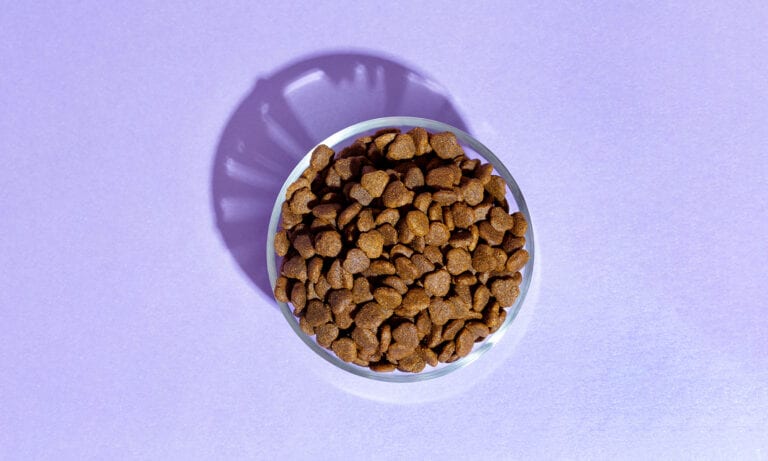Pumpkin is a favorite staple around the holiday season, but what you may be wondering is whether your pup can also indulge in this fall-time favorite. The answer is yes—not only is pumpkin for dogs acceptable, but feeding your dog pumpkin also provides key nutrients to keep your furry friend healthy and happy.
So, what are the health benefits of pumpkin for dogs?
We asked food therapy and holistic veterinarian expert, Dr. Judy Morgan, DVM, from Clayton Veterinary Associates, to share with us how pumpkin for dogs is beneficial for their health.
Why Is Pumpkin Healthy for Dogs?
Pumpkin is a nutrient-rich food that is low in calories, but packed with essential vitamins and minerals. In addition to its high concentration of vitamin A (beta-carotene), pumpkin contains a lot of potassium, which helps regulate blood pressure, improves muscle health, and assists your dog’s metabolism. With the help of other key nutrients, such as vitamin C, iron, phosphorus, magnesium and folate, this superfood can help improve your dog’s health in a variety of ways.
Amongst other things, “Pumpkin is a good source of soluble and insoluble fiber. Based on this, it can be helpful for both constipation and diarrhea in dogs,” Dr. Morgan said.
What Are the Health Benefits of Pumpkin for Dogs?
The beauty of pumpkin for dogs is that it can be used in its entirety—both flesh and seeds are packed with essential nutrients. Each component has its own benefits: while the flesh adds hydration to your dog’s diet, the seeds contain vital antioxidants and a healthy dose of omega-3 fatty acids. Below is a list of all the health benefits pumpkin provides for your dog:
Eye Health
When it comes to eye health, dogs need vitamin A just as much as humans do. To prevent the development of night blindness and other eye degeneration, the beta-carotene found in pumpkin flesh is an integral nutrient in any pup’s diet.
Skin and Coat
The high water content in pumpkin flesh along with key nutrients, like vitamin A and zinc, all contribute to supple skin and a lustrous coat. The added moisture not only gives your dog a shiny coat, but it will also cause the skin to flake less and reduce the amount of hair that ends up shedding on your carpets, furniture and clothes.
Digestion and Organ Health
The antioxidants and anti-inflammatory properties found in pumpkin seeds can help dislodge kidney stones and prevent urinary incontinence. Additionally, both the moisture and fiber found in pumpkin flesh will help your dog have more regular bowel movements, whether he suffers from constipation or diarrhea.
According to Judy, “From a Traditional Chinese Veterinary Medicine perspective, pumpkin is a good Qi (energy) tonic, so it helps get the bowel moving.” Additionally, the “high fiber and water contents in pumpkin flesh are warming to the bowel, which does not like to be cold.” If your pup has a sensitive stomach, consider pumpkin dog treats. Weruva Pumpkin Patch Up! dog and cat supplement pouches add pumpkin to the diet while helping to ease digestion.
Parasites
Though pumpkin for dogs alone may not be 100% effective in eliminating worms and other parasites, it contains high amounts of cucurbitacin, a biochemical compound that is toxic to intestinal parasites. Giving your pup pumpkin treats can help expel worms and other gastrointestinal parasites.
How Do I Incorporate Pumpkin Into My Dog’s Diet?
Pumpkin can be enjoyed by dogs in a variety of ways. There are many pumpkin dog treats, canned dog food and supplements that can easily be incorporated into your dog’s diet. For a low-calorie pumpkin dog treat, give Fruitables Pumpkin & Blueberry Flavor Crunchy Dog Treats a try!
As with any food, it’s important that you feed your dog the correct amounts of pumpkin. There is no real risk of overdosing on the natural nutrients found in pumpkin, however, eating too much could lead to nutritional deficiencies elsewhere, or even a potential calorie deficit. Judy recommends feeding your pup “anywhere from 1 teaspoon to 1 tablespoon per 20 pounds of body weight, mixed in with their food at each meal.”
“Pumpkin can be added to meals using canned organic pumpkin or by cooking and serving real pumpkin. It can also be used as an ingredient when making treats. Add a little cinnamon and you have a winner!” says Judy.
Pumpkin seeds are high in fat and should be fed more sparingly. Avoid adding too much salt or oils to pumpkin seeds, as fatty, rich foods can cause a life-threatening condition called pancreatitis in dogs. For puppies and very small or underweight dogs, only feed pumpkin in very small amounts as a treat.
Be careful not to feed your dog pumpkin pie filling or any canned pumpkin with added sweeteners or spices. You can also make your own pumpkin dog treats from canned pumpkin, but ensure that you include only safe ingredients for dogs in your recipes!
When added to your pup's diet properly, there are a ton of benefits of pumpkin for dogs. Before adding anything new to your dog's diet, though, keep in mind it's best to always consult your veterinarian first.
Share:











